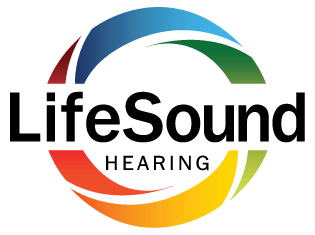
Hearing aids are frequently life-changing, resulting in better communication and a superior quality of life. When first starting to use them, some users report headaches. Luckily, despite the frustration, these headaches are often short-lived and can be easily resolved with correct adjustments and care. Let’s examine why these headaches happen and how to avoid or treat them!
Common causes of headaches from hearing aids
- Poor Fitting: Should your hearing aid lack a proper fit, it may put pressure on vulnerable areas of the ear, which may lead to headaches and general discomfort. If headaches occur soon after getting a new hearing aid, the problem is often an ill-fitting device.
- Sound Overload: It takes time for your brain to adjust to processing the louder sound signals. Initially, perceiving sounds you didn’t hear before– like background noise– can be too much and induce headaches. However, this effect is should resolve over time.
- High Volume Settings: Setting the volume too loud can lead to sensory fatigue from the excessive input, thereby triggering headaches. Try starting out at a lower volume and slowly raising over time as you acclimatize to your new normal.
- High-Pitched Sounds: When your hearing aids emit feedback or a high-pitched whistle, it can cause irritation in the ears and trigger tension headaches. Talk to your audiologist if your device is creating sounds that lead to agitation or annoyance.
- Time to Adapt: Remember: Your brain needs time to get used to using your hearing aid. As the brain recalibrates how to process sounds during this phase, some individuals may feel slight discomfort, such as headaches.
Tips to prevent and treat headaches
- A Proper Fitting is Key: Be certain your hearing aids are expertly adjusted to avoid any pressure points inside your ear canal.
- Adjust Volume Gradually: Begin with a comfortable volume level and slowly raise it to keep from overwhelming your auditory system.
- Newer hearing aids include features for background noise reduction. Ask your audiologist about changing the settings or getting a newer device if yours doesn’t have this feature.
- Take Breaks: During the adjustment period, allow your ears and brain some respite throughout the day to prevent sensory fatigue.
- Regular Check-ups: Stay in contact with your audiologist for fine-tuning adjustments, especially if your device is causing discomfort.
Knowing when to reah out to your hearing specialist for headaches
It’s time to seek advise from a hearing specialist if the headaches persist after the initial adjustment or if they are accompanied by other symptoms, for example nausea, ear pain, or dizziness.
Continuing headaches might indicate that you have incorrect device settings or an unseen problem, such as a hearing aid malfunction or an ear infection.
A well-fitted hearing aid can enhance your life
While headaches caused by hearing aids can be frustrating, they are usually temporary and easy to resolve with professional help. Correctly fitted to your needs, the ideal hearing aid can substantially enhance your life without causing discomfort. Reach out to your audiologist if you run into any problems; your hearing health and comfort are essential! At the end of the day, if your hearing aid is causing you pain, your audiologist knows you’re likely to stop wearing it.
Temporary Headaches are Normal
Headaches from hearing aids are common– they are just a temporary setback on the road to clearer hearing. This is a common experience, and it’s likely to be resolved with minor adjustments. The right care and adjustments will get you back on track, enjoying the little sounds of life, music, and conversations quickly!
Schedule an appointment today if you are dealing with headaches caused by your hearing aids.

